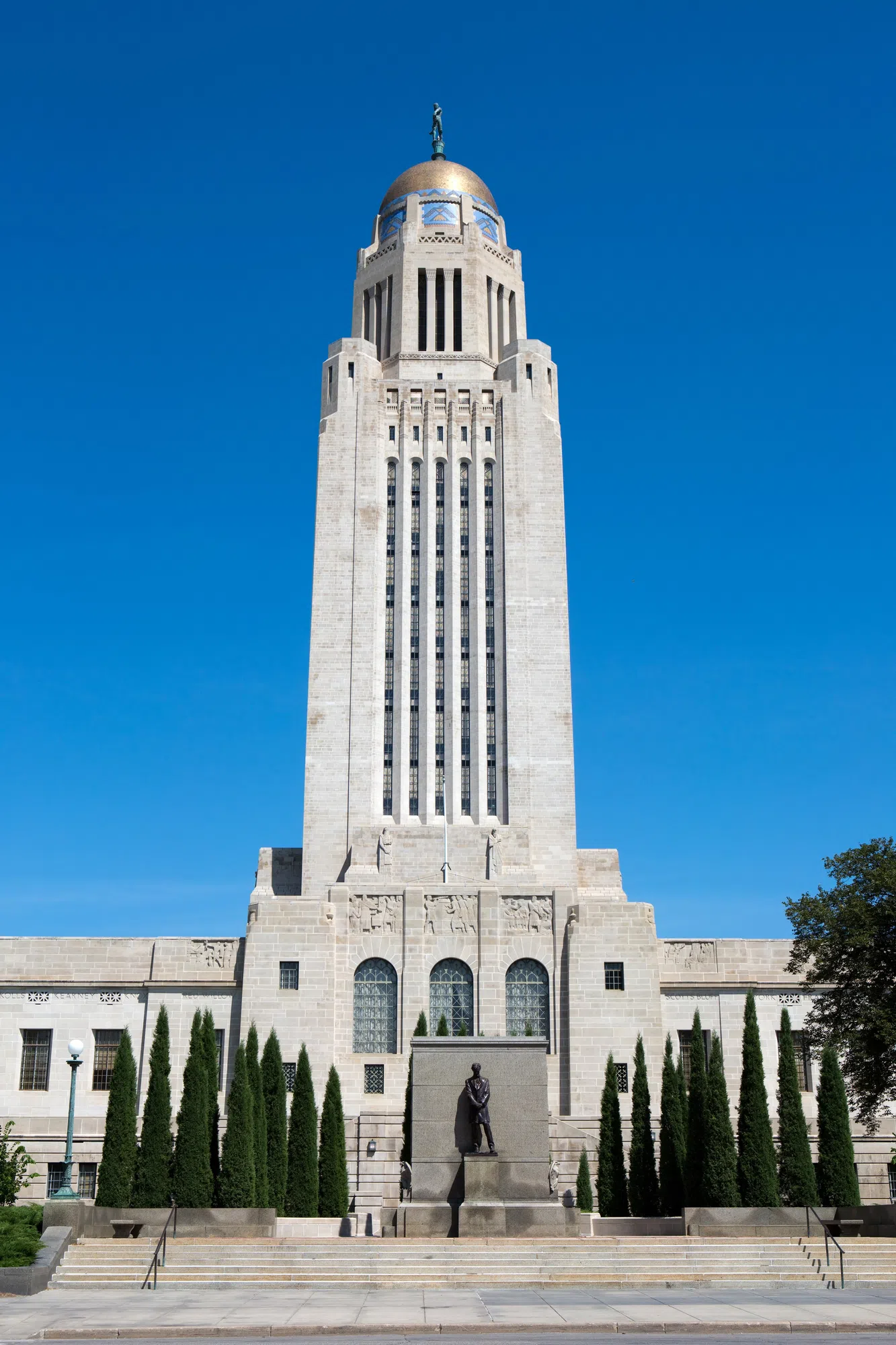LINCOLN, NE — On Tuesday, seven-year-old Teddy Bronson stood patiently at his walker just outside the doors of the Nebraska Legislature, a symbol of the many families hoping state lawmakers would act on a bill to make medical cannabis more accessible for patients like him.
Teddy, who lives in Omaha and suffers from severe epilepsy, was frequently mentioned during the nearly eight hours of debate on Legislative Bill 677, which aimed to establish a framework for regulated access to medical cannabis. Despite emotional testimonies and support from advocates, the bill failed to advance—falling 10 votes short of the 33 needed to overcome a filibuster.
Supporters, including State Sen. Ben Hansen of Blair, expressed frustration over the outcome. “Can you guarantee the family of Teddy that the Medical Cannabis Commission will ensure he gets the treatment he needs?” Hansen asked on the floor. The response from Sen. Dan Lonowski of Hastings: “No.” Hansen’s response? “Then this bill is the only guarantee he has.”
The bill would have allowed cannabis in forms such as vaporized products, infused edibles, ointments, and tinctures—with a recommendation from a licensed doctor, physician assistant, or nurse practitioner. Smoking cannabis would remain prohibited, although possession of flower would be allowed for preparation into other forms.
Despite being scaled back over the session, and even with an offer to delay implementation until the Nebraska Supreme Court rules on an attorney general challenge, the bill was ultimately blocked. Many opponents cited language from the ballot initiative passed in 2024 by 71% of Nebraska voters, which created a Medical Cannabis Commission. They argued the commission should have sole regulatory authority, not lawmakers.
Sen. Jared Storm of David City led the charge to defeat the bill, asserting that legislative involvement contradicted the will of the voters. But others, like Sen. George Dungan of Lincoln, pushed back, arguing the ballot initiative does not prohibit legislative action and that without legislative safeguards, the commission could make access nearly impossible.
Crista Eggers, director of Nebraskans for Medical Marijuana, called the vote a failure to meet the expectations of voters. She and others also criticized Gov. Jim Pillen’s appointments to the cannabis commission—Lorelle Mueting and Monica Oldenburg—both of whom have previously opposed legalization efforts.
Teddy’s mother, Elizabeth Bronson, a nurse practitioner, expressed deep frustration: “In private, senators say they want to help. Then they vote against it. They don’t live in our house. They don’t see what we go through every day.”
Sen. Glenn Meyer of Pender shared his own constituent’s story—someone who found relief and professional functionality through cannabis obtained out-of-state. “This body, full of intelligent people with good hearts, should find a way to help Nebraskans get relief,” he said.
Although LB 677 won’t advance this session, Hansen indicated he may reintroduce it in January. Without legislative action, he warned, voters could respond by pushing for a broader recreational marijuana initiative instead.


















Comments